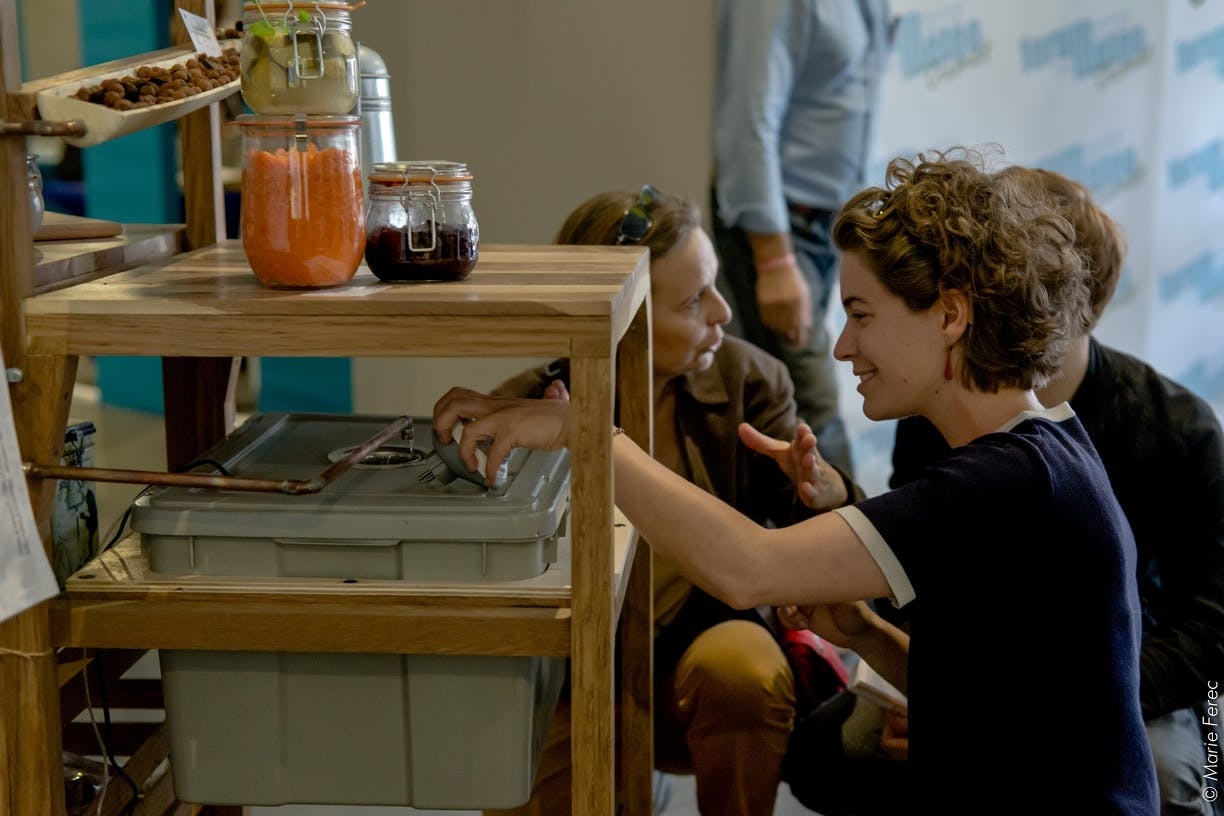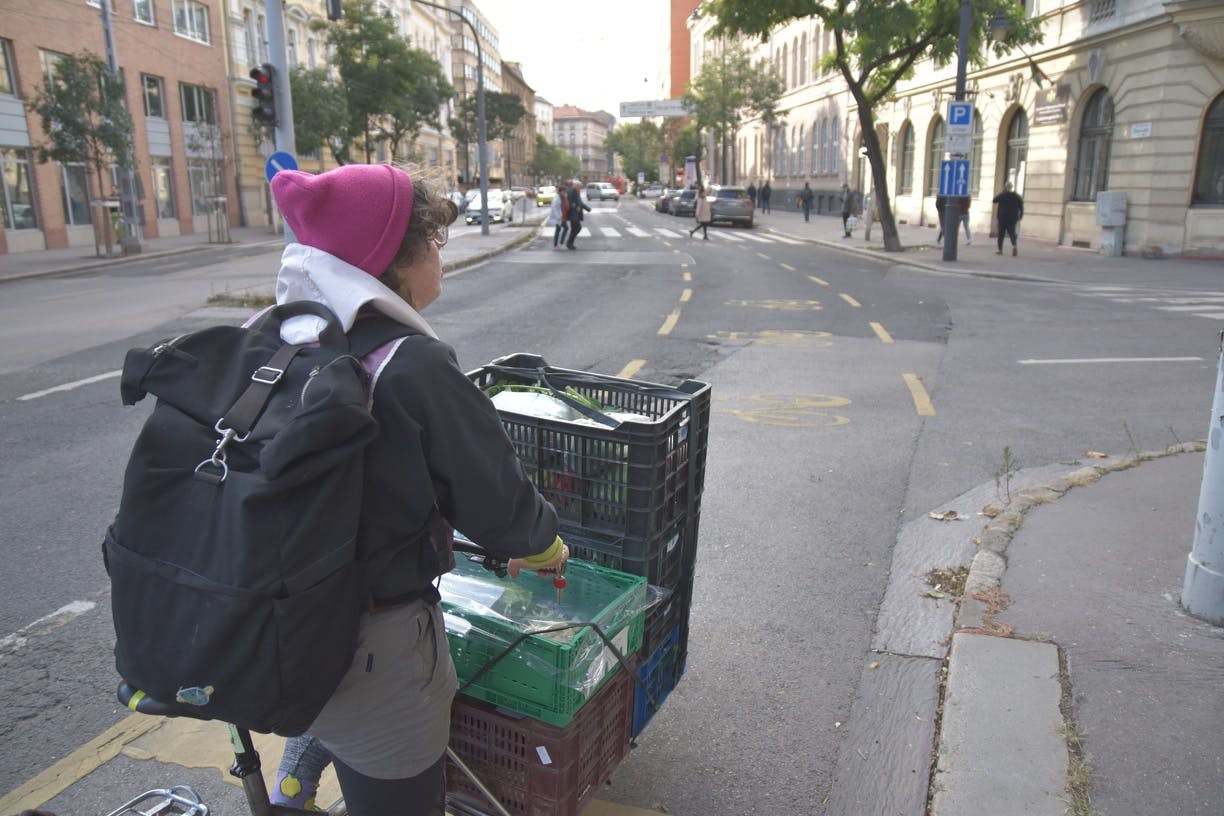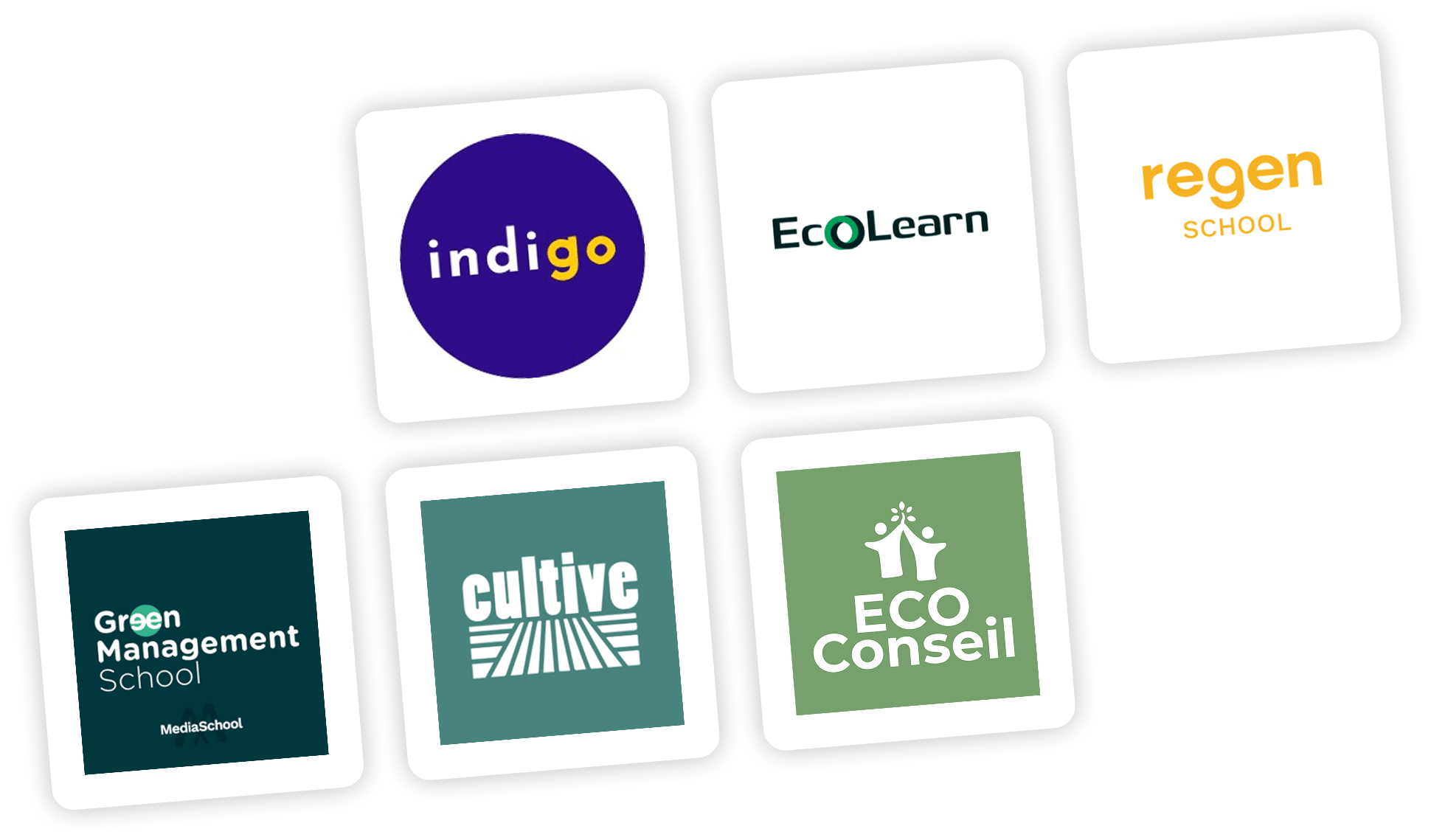The low-tech approach: a professional way forward?
In recent years, we've invented 46,000 needs for ourselves. It's true that we have more comfort, which is great! But we're cluttering ourselves up with superfluous items and throwing away a lot. The low-tech approach responds to these challenges, to the ecological emergency and to greater social equity. By questioning our relationship with technology and technical progress in general, it aims to meet our essential needs in a useful, accessible and sustainable way. Low-tech refers to all the technical solutions we can easily put in place to improve our lifestyles, reduce our electricity bills, eat with less consumption, dress with fewer resources and even produce our own energy and equipment. Classy! For some years now, people have been taking an interest, joining Low-tech Labs, or applying the low-tech approach to their professions;
So, is it the way of the future? And if so, how can you make a career out of it?
We put the question to 3 engineers, who chose to put their skills at the service of this approach. Martin, Renaud and Quentin tell us more...
Low tech in response to dissonance
On graduating from engineering school, Quentin Mateus says he "rejected the professions for which he was expected and for which he had developed skills." Having forged a critical mind throughout his studies, he did indeed choose to enter the job market by carrying out a mission undertaken as part of a civic service. He left for Bangladesh, to learn how to make the most of local natural materials. There, he worked on the low-tech project initiated by Corentin de Chatelperron before founding the Low-tech Lab, and hearing about the low-tech movement for the first time. Martin, for his part, began working in the automotive sector after his studies, but soon found himself at odds with the purpose of his work : "we were trained to make electric cars and renewable energy systems. Even then, I didn't think it was coherent, because we were sticking to the model of individual cars.I didn't see it as a solution for the future." Finally, Renaud has been an engineer in high-tech and industry for over 10 years. Via the tools he works on, he accompanies the implementation of technical innovations to make his colleagues' jobs easier, but it's not enough to fulfill his sense of usefulness: "The more I dug into the impacts of industry, of the economic foundation of the system I was working for, the more I realized that it wasn't compatible with what I wanted: to live on a habitable planet and live well together." Like Martin, he asks himself questions, reads Philippe Bihouix: the age of low-tech. Low-tech seems to correspond to his need for fulfillment, while participating in the construction of a desirable future, complementary to a social approach.
Questioning your job and what you don't learn at school
When you work in this field, what low-tech enables you to do is to rethink all the practices involved in your job, and to take part in the decision-making process, in order to do things differently. explains Renaud, for example. In his view, low-tech makes it possible to politicize his profession, by bringing technology back into the social debate. Quentin shares this point of view, for whom, low-tech puts democracy back into technology,"by restoring the power of action and enabling citizens to take part, to reappropriate their needs, to understand, design and even manufacture equipment enabling them to become more materially autonomous, and therefore more politically free."

Low-tech applications in the workplace
Depending on the structure, the applications are numerous. Renaud wants to launch his business around a low-tech pedagogy and also plans to support individuals in their homes: "I can see myself supporting people who would like to make low-tech creations themselves, without being completely autonomous", he says. Martin, for his part, offers low-tech workshops via his association, aimed at colleges and students. Finally, the Low-tech Lab de Concarneau, is a kind of collaborative research program on low-tech, as much as a collection of free and appropriable content and tools for learning and doing for oneself, training, setting up a community, retraining. "At the start of the project, we were mostly engineers in search of meaning, inspired by the technical cultures of the South, and then DIYers and youtubers" says Quentin. The main mission of the Low-tech Lab was to make people aware of this alternative relationship with technology, and to produce documentaries, webseries and surveys to show these alternative ways of living, doing and organizing "which are already here" he adds. Today, nourished by all these field experiences, the Low-tech Lab team has initiated a latest experiment in the Concarneau conurbation. The aim is to test and learn more low-tech ways of doing things, in cooperation with a multitude of players. "For example, we've been working with the hospital as well as professionals from the port of Concarneau, to set up low-tech logistics using cargo bikes and other intermediate vehicles" explains Quentin.

Low-tech pays off?
Martin, Renaud and Quentin chose to join the association to help spread the low-tech approach. The first two both have jobs on the side. Martin works part-time in a company that is in line with his values: it has created a dolphin repellent to prevent accidental fishing. For the company that hired him, there was an interest: "At a time when employees are looking for committed companies, it's doubly interesting for my employer to take action and stand out from competitors" says Martin. Renaud, on the other hand, will soon be launching his own business. He has enjoyed a good salary working in engineering, and knows that he is in a privileged position to take up this line of work today. For him, however, the fork in the road is possible for everyone: "to embark on this path, some make radical choices and others need time." Financially, the low-tech approach is moreover accompanied by monetary savings that can ease the transition: "clothing, second-hand goods, repairing objects, reviewing one's energy consumption..." are examples given by Renaud, who has adopted this lifestyle."The trick is not to be too hard on yourself in your individual actions," he points out. Finally, Quentin, who is 100% invested as an employee of the Low-tech Lab, can afford it thanks to the various funding the association receives, from foundations, public institutions or even sponsors who supported the production of their documentaries.
Low tech and the meaning of work
Beyond the concrete everyday uses that affect everyone, such as heating with lower consumption or repairing objects, committing to the low tech approach has enabled Renaud to be more aligned, to do concrete and stimulating things:"I have the satisfaction of knowing that what I'm putting energy into today, is a future I desire. I'm discovering a lot of new things and relearning how to make systems that are useful in everyday life." For Martin too, low tech brings concrete benefits, as he preferred to leave a well-paid job to remain consistent with his values. If the path hasn't always been easy, having to find the balance between his associative commitment and his need for remuneration, acting in his daily life and in his work, is for him a duty. And, even more so now that he's a father:"I can't see myself in 10 or 20 years, facing my child and saying: I didn't do anything, I didn't dare, I was waiting for a political decision", he says. Via his work at the Low-tech Lab, Quentin has the feeling of "contributing to making other ways of doing things possible, other individual and societal trajectories, as much socially and ecologically as politically."

Low tech, the way of the future?
For Martin, the answer is yes, "provided that the job market frees up positions on this theme and that training is adapted." For Renaud, "yes, low tech is a way forward for engineers, as well as non-engineers. On the other hand, it may not be a path that will tick off the success indicators we see in the Palmarès des grandes écoles." As an engineer, he approaches the question from this point of view and points out "that we may need to change this vision of the engineer as a very privileged class, going out to earn a lot of money and going out to change the world thanks to technology." Finally, Quentin points out that each of the Low-tech Lab's surveys has uncovered so many of tomorrow's low-tech professions, which are already here, only still invisibilized or devalued. He cites the following professions:"second-hand materials depositor and rehabilitator, repair-café or shared workshop leader, solar baker, trainer in energy autonomy and self-construction or self-renovation coach, boilermaker or artisan-framer of cyclologistics objects, reconditioner.se of IT or medical equipment etc." He agrees with Renaud that it all has a lot to do with our representations and models of success : "I have an old colleague who says that low-tech is a change of outlook. If we looked with the same admiration at living heritage companies, or the autonomous peasant inventors on their collective farms, true designers, agronomists and experienced engineers - who take care of ecosystems and their land, who strive to open up their farms and remain social and cultural players in their territories, who work with the living rather than against it, who spare their health as much as the resources and common goods on which they depend, by means of appropriate, self-built farming tools over which they retain control - the very people who produce diversified, free and rich food, of high quality, local and seasonal, on a human scale ; if we were to look at them with as much admiration as the silicon valley magnates, their professions would be better considered and revalued, if they once again represented a desirable form of freedom and fairness; these professions would also be better shared, de-intensified and thus ever more convivial and fulfilling for the individual, the collective and society as a whole."

10 low-tech structures that inspire them
- Kerlotec, an ecosystem of low-tech companies.
- Objets Bien Fait, a company promoting more sustainable consumption in everyday life.
- La vie est belt, a young brand that designs, produces and sells clothing made from recycled materials, in association with various partners: companies with socio-economic goals, integration structures, living heritage companies, etc.
👉To find out more, you can watch this video on Instagram showcasing life is Belt ! - L'Atelier Paysan, a cooperative that peddles peasant technologies, documents and supports farmers in the design and manufacture of their own farming tools.
- La Belle tech, which re-designs, adapts, certifies and custom-manufactures low-tech systems for professionals.
- La Fumainerie in Bordeaux, on the initiative of residents wanting to preserve water resources, by equipping the city with dry toilets in town.
- Veloma in Bressuire, which designs, manufactures, and accompanies the construction of cyclologistics objects, documenting and distributing them as open-source.
- Super Solide, design studio for everyday low-tech objects.
- Ecocotte, manufacturer of Norwegian cooking pots.
- Le Relais, a socio-economic company (integration through economic activity) in France and abroad, specializing in the collection, sorting and resale of clothing, but also textile design, the production of recycled cotton insulation, etc.
10 possible training courses in low tech
- Explore's MOOC "How to do better with less, think differently with low-tech", in collaboration with members of the Low-tech Lab,
- The Low-tech Base training course "The low-tech approach in practice", to acculturate and discover the principles and methods of low-tech.
- Aezeo, low tech training center to learn how to produce the energy you consume, make and install your own equipment, reappropriate your relationship with energy, and your use of energy.
- La Bifurque, express professional training, theoretical and practical, "artisan of transition".
- L'Archipel du Vivant, which offers several low-tech training courses.
- Atelier Sésame, l atelier du Soleil et du vent, Nerzh Nevez, or the various ecocentres to learn how to self-build low-tech.
- La Petite Rockette to become a value-adding agent for everyday consumer goods.
- Les Champs des Possibles, which beyond their activity as a business cooperative and agricultural test space offer a range of training courses at every stage of an agro-ecological and solidarity-based professional project, from emergence to specialization.

7 career ideas in low tech
- Responsible for low-tech processing and valorization of urban composts: rearing black soldier flies, earthworms, efficient bacteria, etc.
- Solar craftsman, you have the example of NeoLoco, Europe's 1st solar bakery, but also a producer of peasant farming, lacto-fermented preserves, mushrooms on coffee grounds, spirulina.
- Operations manager in a structure that reuses building materials.
- Recycling technician in a ressourcerie, recyclerie, repair-café, bicycle or furniture repair workshop
- Cooperative courier collector of organic materials, cardboard, glass, etc;
- Self-build coach (in the renewable energies or eco-construction sector)
Taking action
👉 Find a job with a positive impact
👉 Training for jobs in the ecological and social transition
Further information
👉 Will eco-design save the world?
👉 Martin - Low tech association manager and part-time employee.



